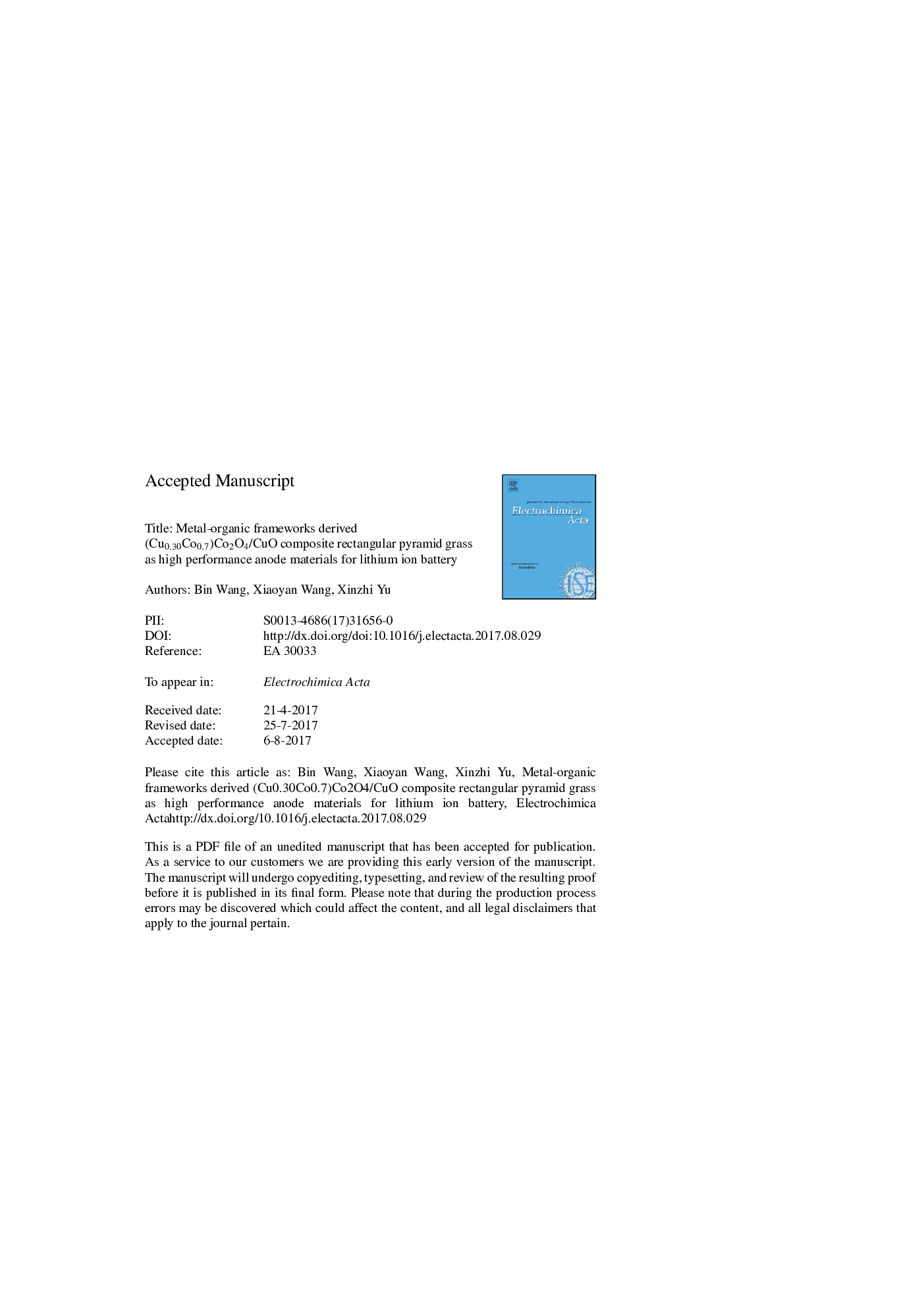| Article ID | Journal | Published Year | Pages | File Type |
|---|---|---|---|---|
| 4766720 | Electrochimica Acta | 2017 | 24 Pages |
Abstract
With a simple hydrothermal and subsequent annealing method, the rectangular pyramid grass structure of (Cu0.30Co0.7)Co2O4/CuO was obtained. During the synthesis process, CuO can effectively restrain the aggregation of (Cu0.30Co0.7)Co2O4, which is beneficial to morphology reconstruction. After morphology reconstruction, the rectangular pyramid grass structure transformed to net porous structure, which is helpful for electrolyte penetration and Li ions transportation, and results in an increased capacity and enhanced cycling stability. The electrochemical measurements of (Cu0.30Co0.7)Co2O4/CuO electrodes exhibited excellent specific capacitance (717 mA h gâ1) and cycle stability (1000 cycles) at a large current density of 1000 mA gâ1. The first-principles calculation shows that Cu-O bond is weaker than that of Co-O. Furthermore, with the insertion of Li ion, Cu-O bond broke first, which is conducive to the de/insertion of Li ion. In all, the porous (Cu0.30Co0.7)Co2O4/CuO composites were synthesized by a simple method and the excellent electrochemical properties can be obtained for LIBs.
Related Topics
Physical Sciences and Engineering
Chemical Engineering
Chemical Engineering (General)
Authors
Bin Wang, Xiaoyan Wang, Xinzhi Yu,
